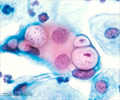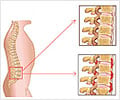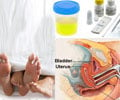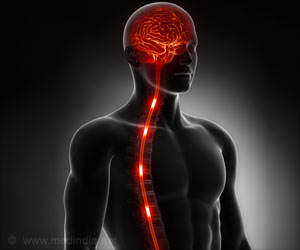Scientists have found that Chlamydia could play a major role in causing a type of arthritis.
Scientists have found that Chlamydia could play a major role in causing a type of arthritis.
Spondylarthritis (SpA) represents a group of arthritidies that share clinical features such as inflammatory back pain and inflammation at sites where tendons attach to bone.It includes ankylosing spondylitis (AS), psoriatic arthritis, inflammatory bowel-disease-related arthritis, reactive arthritis (ReA) and undifferentiated spondylarthritides (uSpA).
While Chlamydia trachomatis or Chlamydia pneumoniae (which are often asymptomatic) are known to cause ReA frequently, the study was aimed at finding out the link between these two infections and uSpA.
The study, led by John D. Carter of theUniversity of South Florida, involved blood and synovial tissue analysis from 26 patients who had chronic uSpA or Chlamydia-induced ReA.
The researchers used synovial tissue samples from 167 osteoarthritis patients as controls.
They then analysed samples to assess chlamydial DNA and the 26 subjects were asked if they had any known exposure to Chlamydia trachomatis or Chlamydia pneumoniae and if so, the infection was documented in relation to the onset of their uSpA.
Advertisement
It was found that the rate of Chlamydia infection was 62 percent in uSpA patients, significantly higher than the 12 percent seen in control subjects.
Thus, they said that because ReA is a type of SpA and patients with ReA do not present with the classic combination of symptoms of arthritis, conjunctivitis/iritis and urethritis, it is reasonable to believe that Chlamydia trachomatis plays a role in causing uSpA, which may in fact be ReA.
They concluded that although there is no diagnostic test for Chlamydia-induced ReA, testing for chlamydial DNA in the synovial tissue of patients thought to have ReA may be the most accurate way of diagnosing the condition.
The study was published in the May issue of Arthritis and Rheumatism.
Source-ANI
SRM










